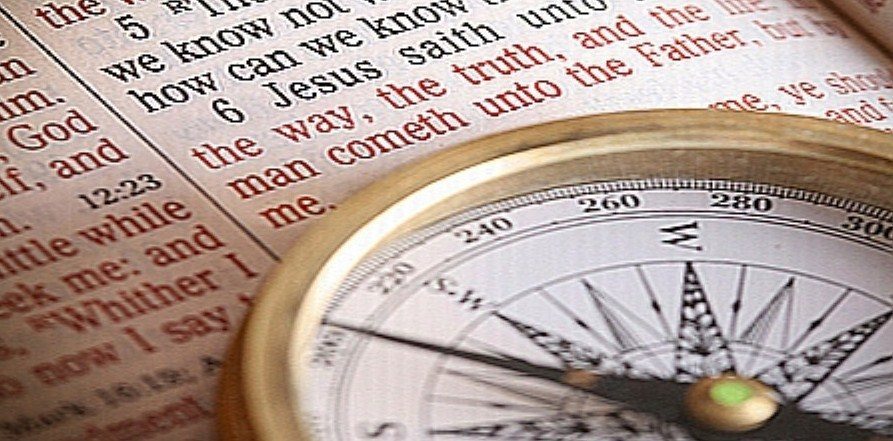Many readers will be familiar with the name Keith Newman, author of Bible and Treaty – a book we’ve been encouraging people to read in the lead up to 2014 – the year we mark 200 years since Samuel Marsden first preached the gospel in Aotearoa New Zealand.
Keith has recently released a new book called Beyond Betrayal, and was interviewed by Chris Laidlaw on Radio New Zealand, Sunday 29 September.
As Keith talked about the important role played by the missionaries in New Zealand, and especially by Maori believers, Chris Laidlaw asked “Has NZ history sold Christianity a bit short?”.
Keith’s answer will not be a surprise to most readers but the examples he gives and the stories he shares are well worth listening to.
Chris Laidlaw challenged Keith about claims over the years that evangelical Christianity had undermined the very essence of Maori culture and that in effect the decision to send missionaries to countries like NZ was a form of spiritual assimilation?
Keith’s reply was that the role of the missionaries had been quite misunderstood. He said that the missionaries had to learn and speak the language, to live among the people, learn their customs, “and of course they were working very hard to undermine some of the nastier elements of [the culture] cannibalism, utu, and bring ideas of forgiveness. But once Maori got this they realised that this was a very important change for them”. He went on to talk about how the constant utu, battles, and so on, were decimating the tribes and undermining their ability to survive and trade.
Click here to listen to the 17 minute podcast









I have just finished reading this book and disappointed to find that it is another NZ history book that doesn’t do justice to NZs history. The author has drawn too much material from questionable or recent sources and neglected the abundant primary source material which give context and background to events. I found the book to be quite negative and don’t believe it will endear anyone to the mission to New Zealand or its subsequent history. The author goes overboard justifying how aggrieved Maori felt by the ‘unforgiveable’ acts of the Europeans while neglecting to go back just a few decades to look at how Maori dealt with land issues and warfare through the period known now as the Musket Wars. There is such a double standard at play here. Maori treating each other horrendously – no comment. Europeans ‘treating’ Maori = terrible acts of injustice! This book seems to make sweeping assumptions but is short on facts which provide context e.g. when discussing Ngai Tahu it states that in 1855 “Crown policy of allowing European Settlers to occupy unsold Ngai Tahu land forced the tribes to relative poverty” yet the documented population of the whole South Island taken in a census (Centennial Historical Atlas in 1857) was 1043 people with another estimated 300 living in Port Levy. There is a lot of land in the South Island! In 1870 Charles Heaphy, Provincial Land Surveyor, calculated that the South Island Maori population of 2275 had reserves of 121,733acres – when were they landless? They received nearly 26,000 pounds for what they sold and there is no way that 1343 people used very much land. They did very well considering they weren’t even an original South Island tribe having been driven down from the North Island by Te Rauparaha . See it’s not a good idea to get your history from Ngai Tahu sources or from Steve O’Reagan! In addition the author gives a very slanted history of the Taranaki and Wiremu Kingi’s ‘alienation’ from the Waitara block (which repeatedly states he ‘owned’ when he didn’t) while neglecting to mention that his own actual territory comprised 460,800 acres which was never disputed by anyone. Nor does it mention that he was paid for the Taranaki land (which he had been driven off by Waikato tribes who were actually the true owners through right of conquest) while living in Wellington with the promise he would never return. He didn’t fulfill this promise and returned to claim a huge amount of land and caused a lot of trouble. The Waikato Maoris were also paid for Taranaki land too and I don’t ever recall reading that Maori ever paid back what they were given when the sales didn’t go through. In conclusion too much of NZs history has been made out to be contentious when careful reading of what was written at the time by many different people gives the context which prevents these things being twisted. While it is good to see books continuing to be written people should avoid falling into the mistaken understanding that all of them tell an accurate history and as we approach NZs missionary bicentennial we should be seeking to tell our history in its context. The reality is everyone made mistakes, NZ was a work in progress and many people tried to do the right thing. Wouldn’t we be better to find a positive way of telling our history that doesn’t create division and find a way to accept that past is past, agree mistakes were made and find a way to forgive everyone and just move on.
The podcast between Chris Laidlaw and Keith Newman was excellent. Thanks for incorporating it in your newsletter. I’ve sent it to as many people as I can think of!
My sense of the history and impact of the advent of Christianity in NZ was that it was so much God’s timing, that the Maori themselves had been caught in a cultural trap of feuding (utu) which was all about family and not justice – and therefore neverending… This is why so many not only accepted but spread the Good News of God’s love and help to change.
The people of Kapiti actually requested a missionary to continue the good work of one evangelist (continuing the wonderful story of Tarore and her Bible), and Hadfield went on to establish the church, to negotiate between Maori and settlers for the benefit of both. Actually Hadfield had a huge impact in the formation of NZ government, schools and the independent Anglican church, but you see little about him in history books – he has been largely forgotten except by historians writing about him personally, and there a quite a few who have done so… He was a great man of God…